In defense of the natural family
If we're not careful, the state could make itself the ultimate arbiter of what constitutes a family

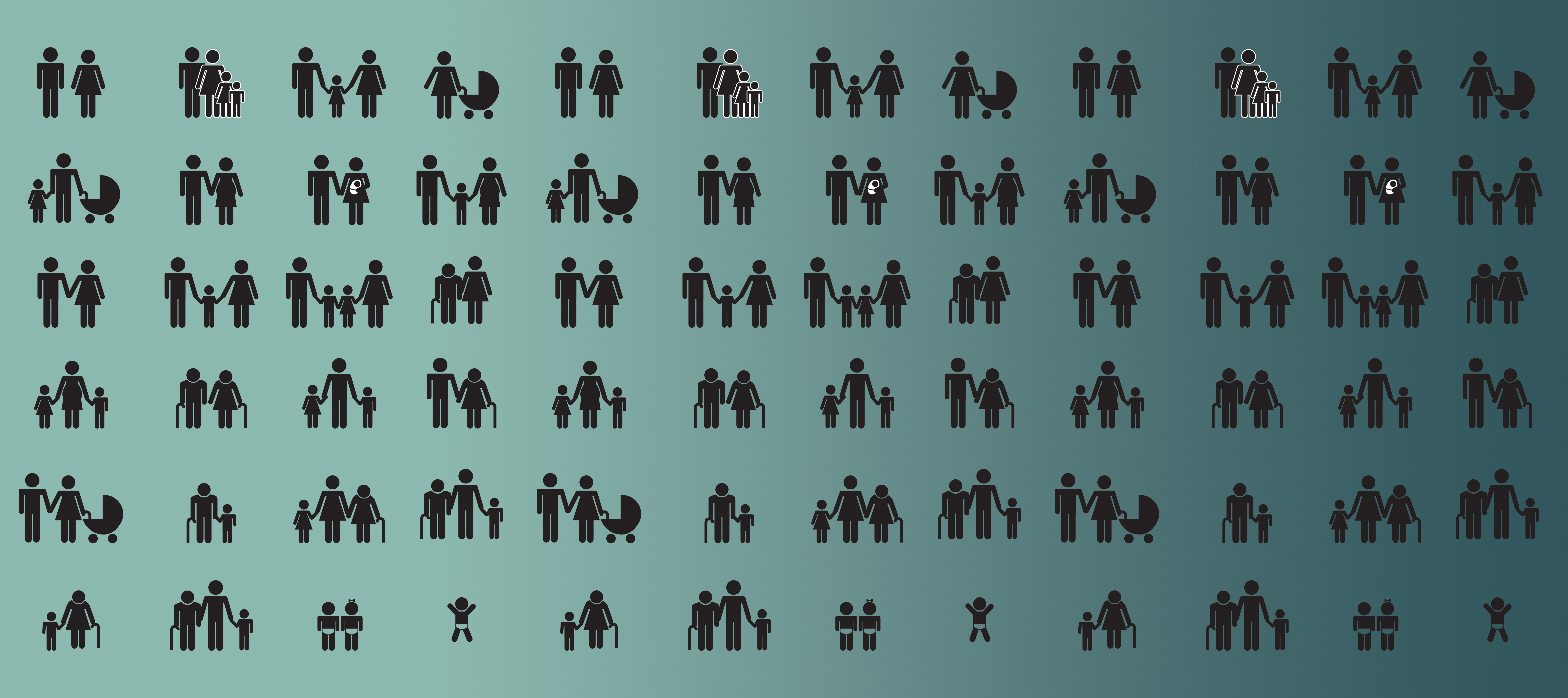
A free daily email with the biggest news stories of the day – and the best features from TheWeek.com
You are now subscribed
Your newsletter sign-up was successful
Last week, a motorist pulled over on Steelstown Road in Rathcoole, a mostly desolate and unremarkable country road west of Dublin. He stopped because he needed to take a piss. And then something strange happened. He heard a baby crying. And there, in an empty field, he found a newborn child, left by herself in a shopping bag.
Doctors estimate the baby was between 24 and 36 hours old. The Gardai have appealed for the mother to come forward. They are forswearing legal punishment and promising assistance, to vindicate the child's claim on her mother's care and love. They call her baby Marie, and she is beautiful.
She is also a symbol of the new coming dispensation for children.
The Week
Escape your echo chamber. Get the facts behind the news, plus analysis from multiple perspectives.

Sign up for The Week's Free Newsletters
From our morning news briefing to a weekly Good News Newsletter, get the best of The Week delivered directly to your inbox.
From our morning news briefing to a weekly Good News Newsletter, get the best of The Week delivered directly to your inbox.
Closer to home, in Kansas two years ago, another parent put a baby in a shopping bag, so to speak. In 2009, William Marotta answered a Craigslist ad posted by a lesbian couple seeking sperm. He donated a few cups of the stuff. In 2014, a Kansas court ordered him to pay child support. "I donated genetic material, and that was it for me," he said in his defense.
How you feel about Marotta's case is probably a good indicator of which side you land on in the culture war. If you think the state is right to make him pay child support, you are likely on the side of the old dispensation — of the "natural family." If you think it is an outrage that some responsibility for the child should be assigned to its biological father, you likely fall on the side of the age that is coming into being — the age of the contractual family, one appointed by authorities.
Marotta's "mistake" in this case was that he made the donation through a Craigslist ad rather than through a sperm clinic, and that the insemination was done at home rather than under the supervision of a doctor. From CNN:
He said he had no intention of assuming a paternal role. "I'm not her parent," he said.But under Kansas law, he is her father. Had a physician carried out the insemination, that would not be the case, because Marotta would be able to document that he was a sperm donor and not the lover of the girl's mother. [CNN]
The language of this news report is the language of the new dispensation. It assumes that what the law has to say trumps what the genes of Marotta and his daughter say. A partisan of the natural family would tell Marotta and other sperm sellers that when they go to the clinic, they are not just selling "material." They are standing in a position of power over their posterity and selling their future child's claims upon them.
A free daily email with the biggest news stories of the day – and the best features from TheWeek.com
Legally recognized sperm (and egg) "donors" take money with the expectation that the resultant children will not be "theirs." That is, for the convenience (and profit) of adults, children are deprived not only of their parents' care, but even the knowledge of their origins. They are deprived of knowledge about their ethnic background, family history, their grandparents — the very things that define us.
The rhetoric of traditionalists about the natural family has sharpened in recent years in debates over same-sex marriage. Traditionalists say that the entire sexual revolution is giving adults unprecedented autonomy to do "what they want," but that it comes at the cost of children's claims upon their parents. No-fault divorce creates incentives that deprive children of the stable homes in which they most flourish. And donor-assisted reproductive technology could be considered a kind of no-fault divorce itself. Parents simply impose a legal and social divorce on their biological child.
Naturally, the argument that natural families are in any way superior is met with suspicion by the democratic mind, and by those who are loyal to the emerging dispensation of the contractual family. Two years ago, Tom Junod encountered this rhetoric at a political conference, and he characterized it as a "war on adoption":
The conservative movement that once minimized the difficulties of adoption because it provided an alternative to abortion is now both explicitly and implicitly denigrating adoption precisely because it provides an alternative to the perfect biological families said to have a patent on God's purpose. [Esquire]
Junod describes one of the pamplets he found extolling the natural family this way:
[T]he National Organization for Marriage pamphlet stunned me for not for its recognition of the biological bond between parents and children but rather for its suggestion that all families built outside that bond were the result of unseemly adult machinations — and so "inverted the purpose of marriage." [Esquire]
First, Junod's article was ironic, coming as it did just after a small wave of moral panic about religious conservatives being dangerously pro-adoption. Junod had to hedge, saying that these are "implicit" charges against adoption, because he cannot find anything explicit. This is because religious conservatives, and even other partisans of the natural family (even gay ones), are for adoptions since they turn orphans into family members.
What they oppose is the opposite: the "unseemly adult machinations" that turn family members into orphans. And they find themselves particularly opposed to a market that demands the deliberate creation of orphans.
This Friday, Ireland will have a national referendum to amend its constitution to include same-sex couples in the definition of a family. Those campaigning for a "No" vote have settled on the slogan that every child deserves a mother and father. That has inspired some predictable consternation over there. The "Yes" campaigners are frustrated that a debate about equal treatment under the law is being diverted into debates about surrogacy, in vitro fertilization, and the donation of "genetic material" like eggs and sperm.
Fintan O'Toole says that the "No" campaigners are offending many more people than gays and lesbians, and surely they are. The same conflict between the Natural and the Contracted family are at play everywhere in the advanced world, but they have been drawn especially sharply in Ireland.
The reason is that the proposed change is to the family section of the Irish Constitution, which relates not to marriage only but "the family." The Irish Constitution states: "The State recognises the Family as the natural primary and fundamental unit group of Society, and as a moral institution possessing inalienable and imprescriptible rights, antecedent and superior to all positive law."
The "No" campaign makes a subtle but profound argument. This section of the Constitution has been found by Irish courts to include the right to procreate, and so the "No" campaigners say that artificial reproductive techniques will insert an ideological understanding of parentage, rather than biology, into the heart of Irish jurisprudence. The word "natural" will have to take on a new meaning.
And rather than the state "recognizing" an antecedent and natural institution of the family whose claims trump those of the state, it will have to take the new commercial understanding of parentage into its hand as it usurps the power to assign legal parentage regardless of biology. The intent of the contracting parties now trumps nature.
This understanding has already come about in some jurisdictions in the United States:
In California, this idea is now so widely accepted, thanks to precedent-making court cases, that both members of a gay or lesbian partnership may be listed as parents on a child's birth certificate, even though one parent has no biological relationship to the child. The idea of intent as a defining quality of parenthood is characteristic of assisted reproduction in general; in cases involving gamete-donation, judges have increasingly accepted the idea that the "real" parent is the person who intended to raise the child. [Everything Conceivable]
Because the Irish state recently and hastily arrogated itself tremendous new powers to act in the "best interests of the child," and because the consideration of biological parentage in family law court cases would give an unequal advantage to opposite sex partnerships, the legal force of biological parentage will be eroded.
In fact, guaranteeing the right to procreate to same-sex couples practically demands the erasure of biological parenthood, as same-sex couples cannot have children without involving a member of the opposite sex, somehow. And equality demands even more. To create the equal experience of full parenthood for both, the child's curiosity (or claims) on his or her biological parents must be obviated and denied, whatever the heartbreak.
Equality before the law will be achieved when all natural parents are in the same legal position as sperm and egg donors, or those who contract for them. The entire social, psychological, historical, legal, and spiritual status of motherhood is thus reduced to mere incubation, and fatherhood to the provision of "genetic material." Instead of the state recognizing the "natural" claims of the family that precede the state, it will appoint them in the "best interests of the child," without counting biological relationships.
Thus you have the case in Britain this month, where a surrogate mother who wasn't docile enough for those (illicitly) contracting her services is now being demonized for breastfeeding her biological daughter in a "manipulative" way and having her child baptized in the Orthodox Christian faith. The court has ordered that her child be assigned to the two contracting men.
In the coming dispensation, even breastfeeding your own child is potentially criminal, if the state is inclined to assign parentage to another based on the contents of email exchanges, rather than genes.
There are also ethical and practical issues of technologically assisted reproduction. There is the very real possibility of accidental incest and consanguineous marriage. The market in sperm is dominated by countries like Denmark and the United States that guarantee that children's claims on their biological parents will be well and truly obliterated — no surprises at age 18, as recently happened in the U.K., when a woman sued to discover that she was one of over 200 offspring of her own father. Some donor children are allowed at least to know the "donor number" to prevent accidentally sleeping with one of their scores of half-siblings.
Any time I'm tempted to think that this possibility is too remote to worry about, I recall that one of my own half-siblings, born on another continent, now works in the exact same industry as I do, in a building just a short walk from the offices of The Week. If we were deprived the knowledge of one another as siblings, the chances of meeting as strangers are intolerably higher than zero.
And I'm the only illegitimate child out there. Imagine a hundred more.
I don't fool myself that even all the secondary and tertiary harms done by the rise of donor-reproductive technology will convince anyone to change their mind about same-sex marriage. The liberation of adults from the moral claims of their biological children is a trend that long precedes same-sex marriage, which will do its own small part in extending that logic deeper into family law courts. The rise of the contractual family is mostly accidental and unintended. But it is truly an entirely new conception of the family.
O'Toole argues passionately that the definition of marriage must continue to change, and that the changes in his life have been good. When he was married in 1983, he says the law made him, as a husband, a "sanctioned tyrant." The law then did not recognize and punish spousal rape; it did not allow divorce; and it considered a wife "domiciled" with her husband even if she remained in Ireland and he lived in London or Boston. Legal divorce, which passed in Ireland by about only 10,000 votes in 1995, set the institution on more equal footing. He says that there was not much to recommend marriage as an institution before such changes.
But the changes wrought by the sexual revolution that O'Toole celebrates have created new sanctioned tyrants — and children are their subjects. In the egalitarian future that he wants, parents are no longer forbidden by taboo, superstition, or law from selling their children's claims in a flesh market desperate for orphans. Mothers are made free to abort their children in the womb. And the normalization of market-created children puts poor biological parents at risk of losing their children to richer strangers deemed more "competent" to act in the best interests of the child.
Baby Marie was left in a shopping bag by the side of the road, and the authorities are scrambling in blind, astonished ignorance to rebuild a family for her. This is the perfect image for a society that has let the market and state usurp the role of mother and father — in the name of freedom, and according to commercial logic.
And Baby Marie, to be sure, was perfectly free herself, sitting in that shopping bag: free from the authority of tradition that put parents and their children in the same home; free from the taboos that held families together; free to be abused by strangers; and free to die alone in a world that doesn't really care either way.
Michael Brendan Dougherty is senior correspondent at TheWeek.com. He is the founder and editor of The Slurve, a newsletter about baseball. His work has appeared in The New York Times Magazine, ESPN Magazine, Slate and The American Conservative.
-
 6 of the world’s most accessible destinations
6 of the world’s most accessible destinationsThe Week Recommends Experience all of Berlin, Singapore and Sydney
-
 How the FCC’s ‘equal time’ rule works
How the FCC’s ‘equal time’ rule worksIn the Spotlight The law is at the heart of the Colbert-CBS conflict
-
 What is the endgame in the DHS shutdown?
What is the endgame in the DHS shutdown?Today’s Big Question Democrats want to rein in ICE’s immigration crackdown
-
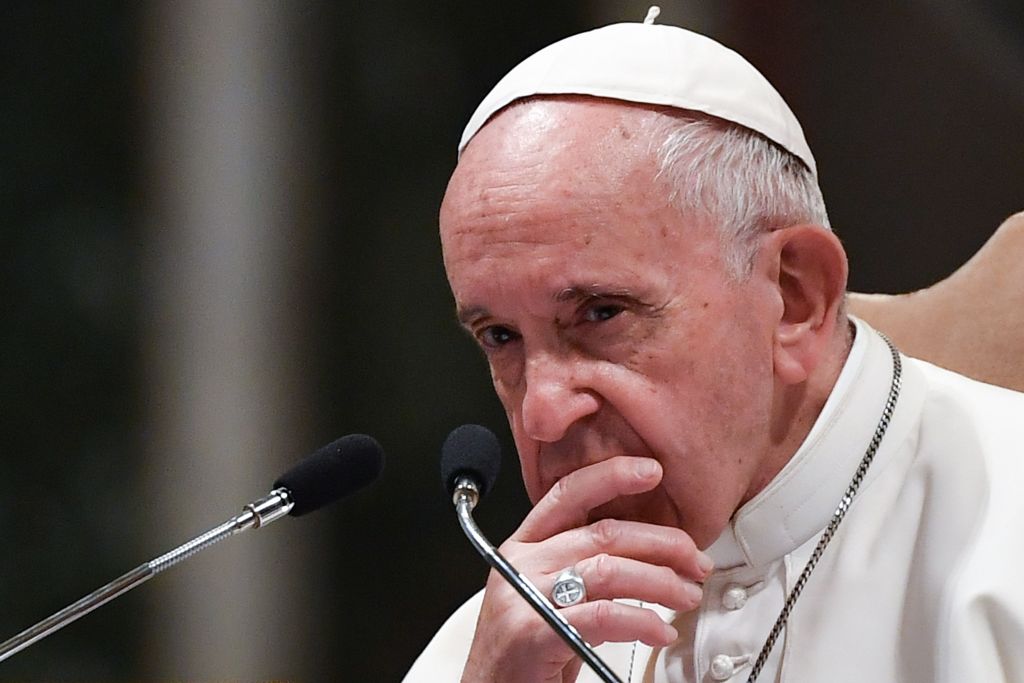 Pope Francis speaks about sex abuse scandals, Trump, and his conservatism
Pope Francis speaks about sex abuse scandals, Trump, and his conservatismSpeed Read
-
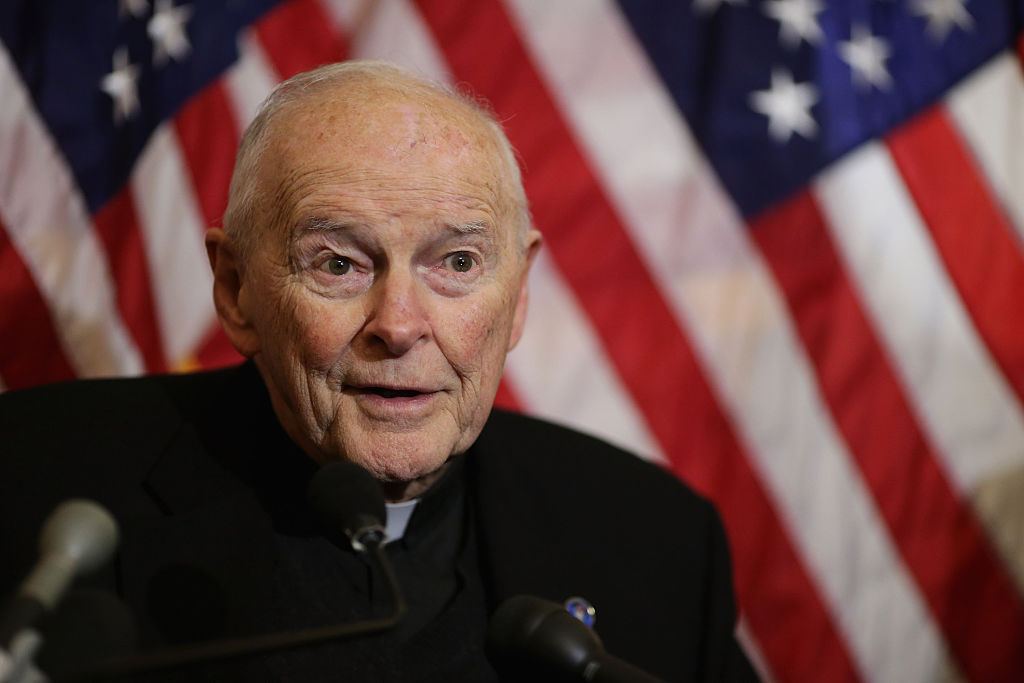 Pope Francis makes unprecedented decision in defrocking Theodore McCarrick
Pope Francis makes unprecedented decision in defrocking Theodore McCarrickSpeed Read
-
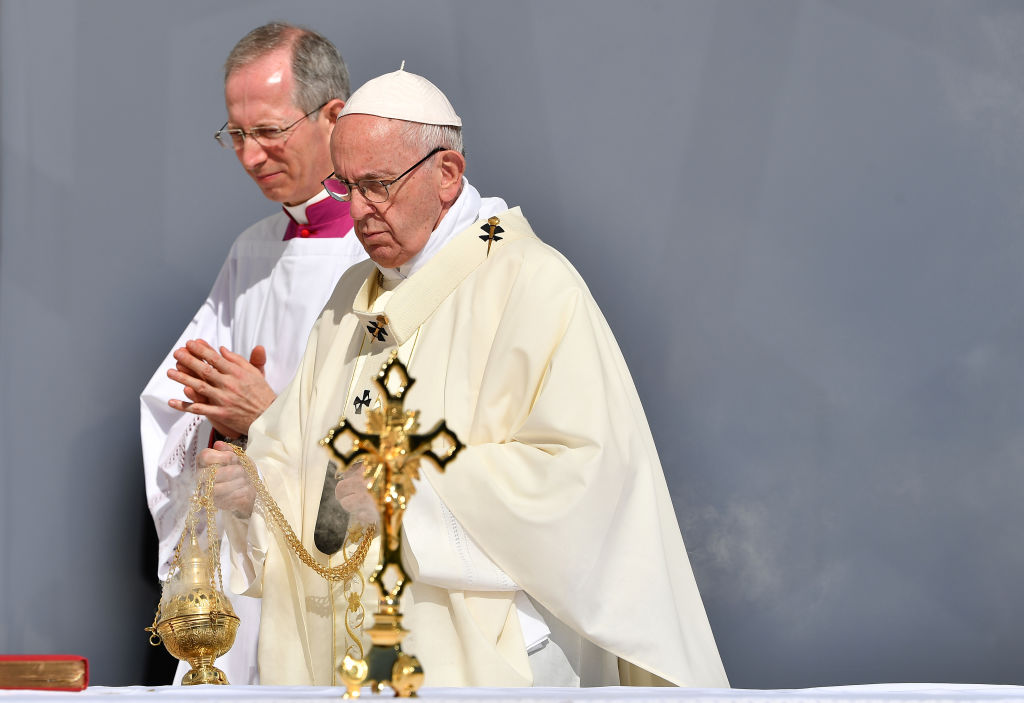 For the first time, Pope Francis publicly admits priests and bishops have sexually abused nuns
For the first time, Pope Francis publicly admits priests and bishops have sexually abused nunsSpeed Read
-
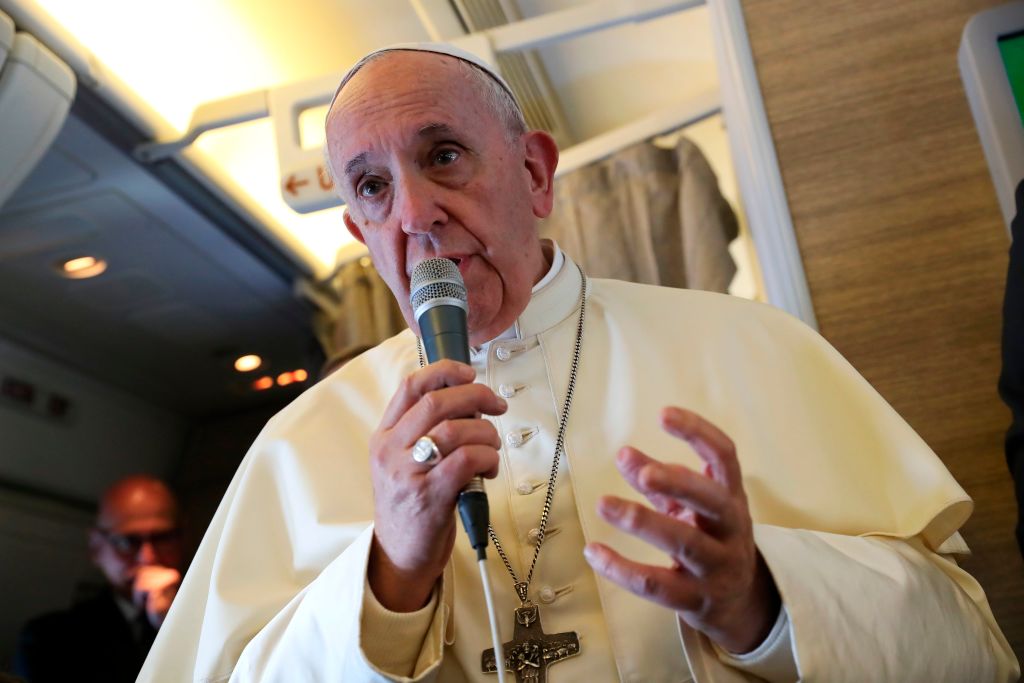 Pope Francis calls for peace in Yemen
Pope Francis calls for peace in YemenSpeed Read
-
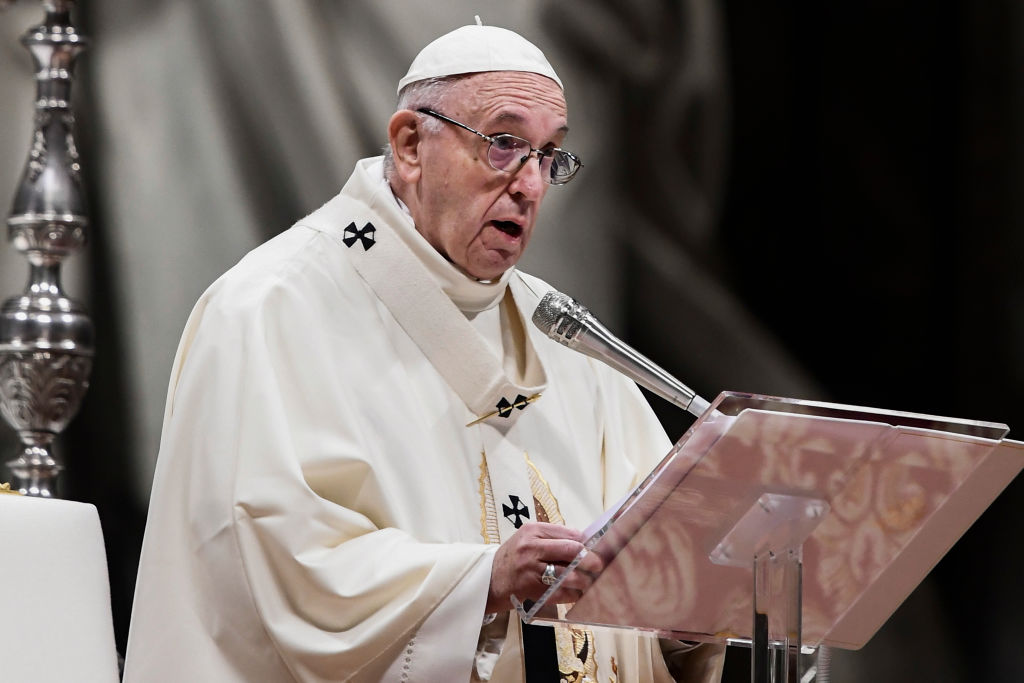 Pope Francis to abusive priests: 'Hand yourself over to human justice'
Pope Francis to abusive priests: 'Hand yourself over to human justice'Speed Read
-
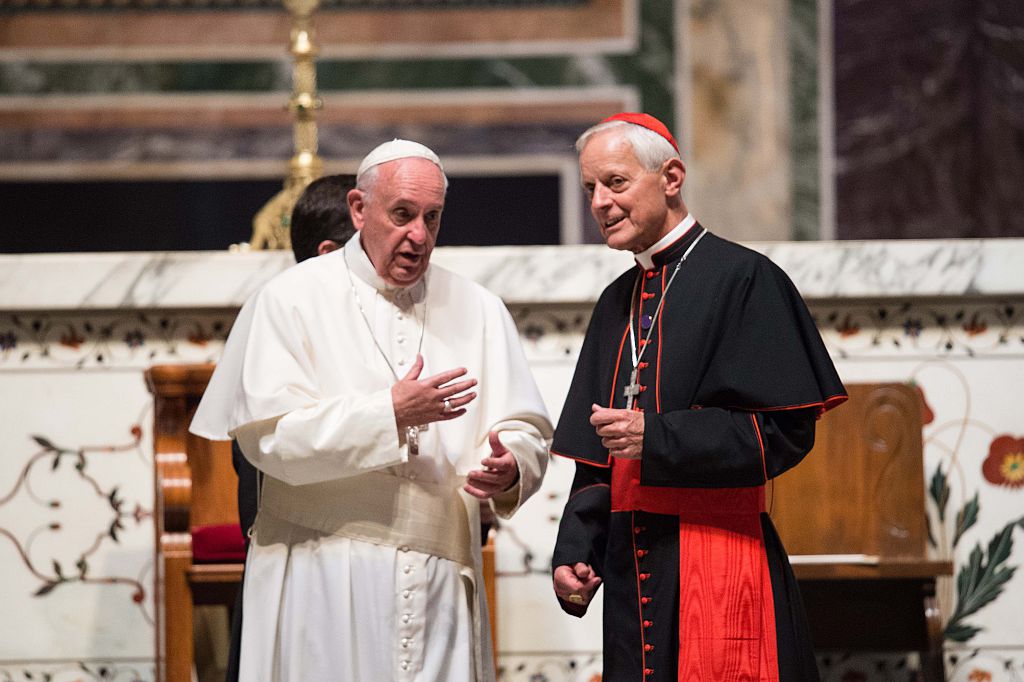 Pope Francis accepts resignation of embattled Washington Archbishop Donald Wuerl
Pope Francis accepts resignation of embattled Washington Archbishop Donald WuerlSpeed Read
-
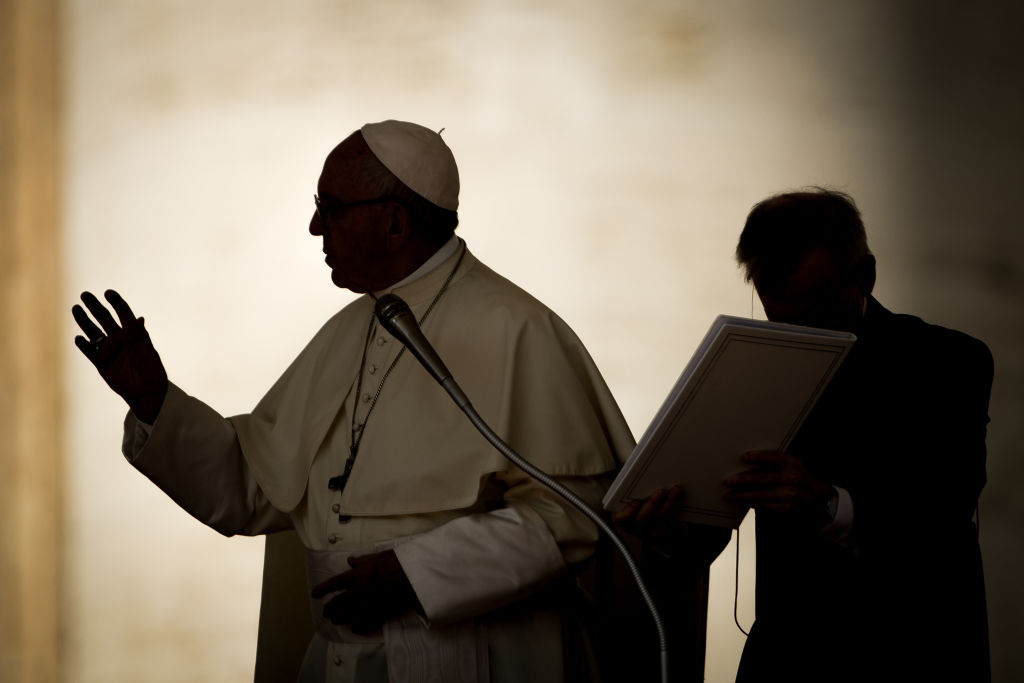 Pope Francis defrocks Chilean priest over sex abuse scandal
Pope Francis defrocks Chilean priest over sex abuse scandalSpeed Read
-
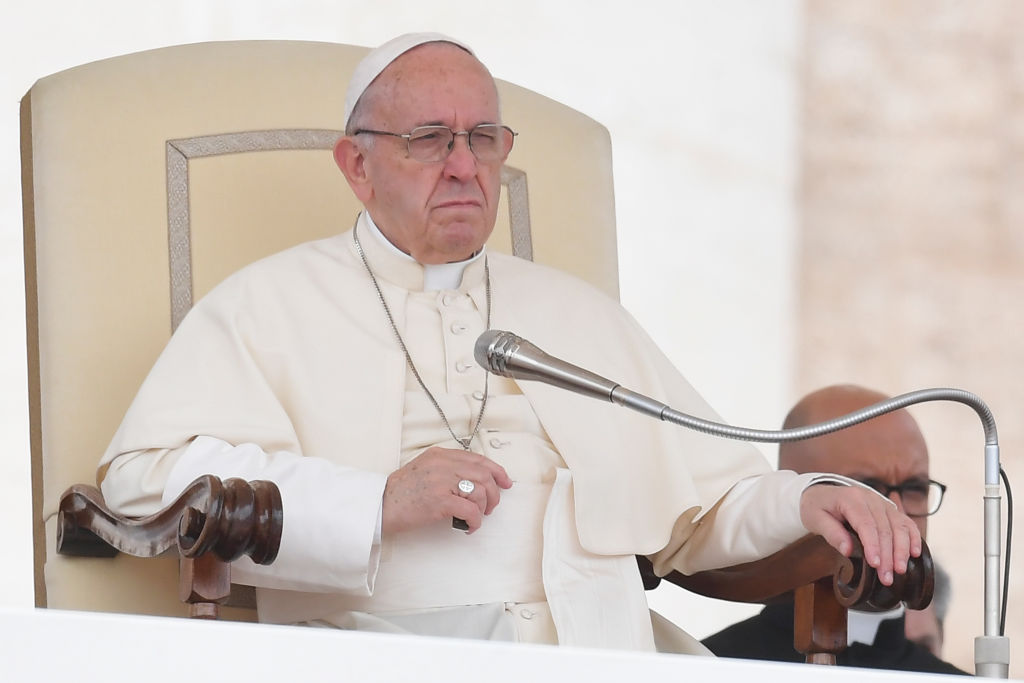 Pope Francis will meet with U.S. church leaders over clergy abuse
Pope Francis will meet with U.S. church leaders over clergy abuseSpeed Read
